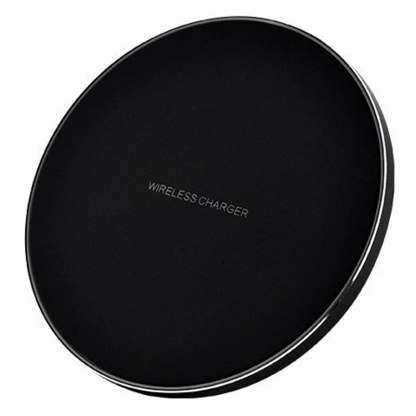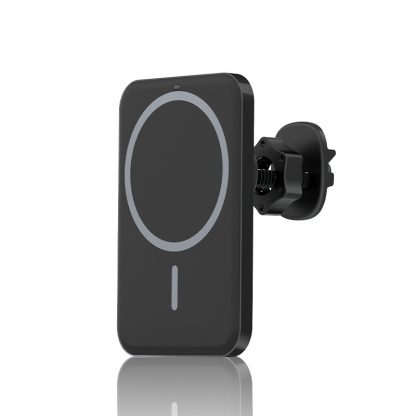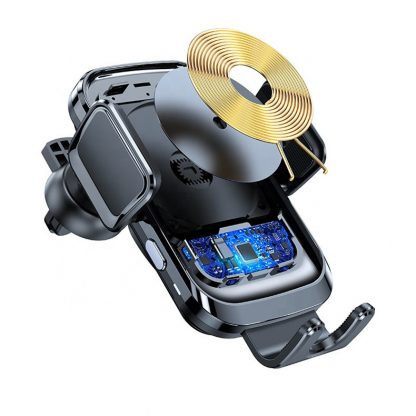Wireless charging has revolutionized the way we power up our smartphones and wearable devices. Gone are the days of tangled cables and fumbling with charging ports. Today, a simple placement of your device on a charging pad or stand can replenish its battery. In this article, we’ll delve into the technology behind wireless charging and explore how major manufacturers like Apple, Samsung, Xiaomi, and Oppo are adopting and advancing this technology.
The Charging Standard: Qi Wireless Charging
The most widely adopted standard for wireless charging is the Qi (pronounced “chee”) standard. Developed by the Wireless Power Consortium, Qi has become the industry benchmark for wireless charging technology. It works on the principle of electromagnetic induction, where an electromagnetic field is used to transfer energy between two coils – one in the charger (transmitter) and the other in the device (receiver). When the two coils are in close proximity, power is transferred, and charging begins.
15W Portable Wireless Charger Q21
15W portable wireless charger – Experience rapid and dependable wireless charging that adheres to the Qi standard, eliminating the need for traditional USB chargers.
Apple’s Adoption: MagSafe and Qi Compatibility
Apple, known for its innovation in the tech industry, introduced MagSafe wireless charging technology. MagSafe combines Qi wireless charging with magnets, ensuring precise alignment and efficient charging. This technology is compatible with recent iPhone models, such as the iPhone 12 series and beyond.
Apple has also extended its wireless charging prowess to wearable devices like the Apple Watch. The Apple Watch uses a similar Qi-based charging mechanism, making it easy to power up the smartwatch without connecting any cables.
15W magnetic wireless car fast car phone holder wireless charger for iPhone 12 13 14 series
Product Description Product Name Car wireless charger Model OJD-69 Material ABS input 5V/2A 9V/2A 12V/1.5A output 5W/7.5W/10W/15W Color Black/White product size 94*64*26mm packing box size 116*86*40MM Accessories Instruction,Air outlet clamp Certification CE/FCC/ROHS compatibility all QI standard receivers executive standard QI wireless charging standard
Samsung’s Leadership: Wireless Charging Ecosystem
Samsung has been a pioneer in integrating wireless charging into its devices. The majority of Samsung’s recent smartphones, including the Galaxy S and Note series, are Qi-enabled. Samsung’s ecosystem includes wireless charging pads, stands, and even wireless chargers that can power multiple devices simultaneously, making it convenient for users with multiple Samsung devices.
NEW Touch Control Smart Sensor 10W 15W Qi Fast Charging Automatic Car Mount Wireless Car Charger Qc 3.0 Fast Charger TYPE-C
Product Description Product Name Car Wireless Charger Model OJD-51 Material ABS+PC Function Wireless Charging Working Switch Touch switches and mechanical switches Power 5W/7.5W/10W/15W Charging Objects all qi standard devices Certificates QI/CE/FCC/RoHs/Appearance Patent Net Weight 277G Gross Weight 327G
Xiaomi’s Innovations: Cutting-Edge Wireless Charging
Xiaomi, a Chinese tech giant, has pushed the boundaries of wireless charging. They’ve introduced groundbreaking technologies like “Mi Air Charge” and “Mi Charge Turbo.” Mi Air Charge aims to charge devices remotely, without direct contact, using proprietary spatial positioning and energy transmission technology. Mi Charge Turbo, on the other hand, allows for extremely fast wireless charging, offering up to 80W of power, significantly reducing charging times for compatible devices.
Oppo’s SuperVOOC: Ultra-Fast Charging
Oppo, another prominent Chinese smartphone manufacturer, is renowned for its SuperVOOC technology. This proprietary technology offers ultra-fast wired and wireless charging. Oppo’s SuperVOOC Wireless Flash Charge provides up to 30W of power, ensuring a rapid charging experience for users. It is compatible with various Oppo smartphones and can even charge other Qi-enabled devices.
The Future of Wireless Charging
As wireless charging technology continues to evolve, it’s not limited to smartphones and smartwatches. Electric vehicles (EVs) are also beginning to adopt wireless charging, making it more convenient for EV owners to power up their vehicles at home or in public charging stations.
In summary, wireless charging, especially Qi-based technology, has become a standard feature in the smartphone and wearable device industry. Manufacturers like Apple, Samsung, Xiaomi, and Oppo have all embraced this technology and have made significant advancements in improving charging speeds and convenience. As wireless charging continues to evolve, we can expect to see even more innovations that enhance the user experience and eliminate the need for traditional charging cables.



